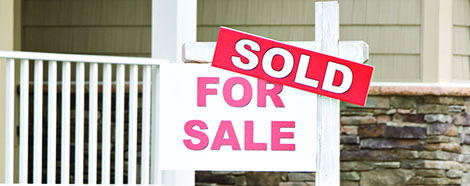Should I go, or should I stay?
That is a question that many people who are looking at retirement are asking themselves. Many future retirees look around their homes that they have lived in for 20 or 30 years or more and look at all they have accumulated–the big yards with the swings for the kids and grandkids, maybe a pool or tennis court, too. While it was all fun at one time entertaining family and friends, you may think it is time to enjoy life a little more and have more “me†time for travel, hobbies, reading, or start a new career as an entrepreneur.
“Should I go or should I stay†may mean downsizing or rightsizing–moving to a smaller home, downsizing or rightsizing to that perfect community condo for 55-plus with activities and everything provided for you, even housekeeping. Although most of the future retirees are not ready for that type of living, those who are will find freedom of yardwork, home maintenance, decluttering, and more time for family and themselves.
Many of the baby boomers (born 1946 to 1964), with the youngest boomers turning 55 in 2019, will see inheritances to fuel big-ticket items, cars, homes, home improvement, travel, and more. Most may keep working because they want to continue to contribute to society and find meaning in their own lives – work does that for them.
As you consider should I go or should I stay, finances will also be something to be aware of.
For example, if you still owe on the mortgage and would like to retire soon, focus on paying off the mortgage, which will free up more income. Wait to take Social Security at full retirement age, save more, work a little longer to get where you want to be.
Make a list of why you want to move, pros and cons. For example, move to be near family–that would be a pro. Would it more expensive to move to another state or city or 55-plus community? That, of course, would be a con. Will you sell one of your cars? Will you need two cars and a truck? Make a list of all your expenses you have with your home: Mortgage, taxes/insurance, utilities, food, yard care, home maintenance, miscellaneous.
If you decide that you want to stay in your current home, consider what will be involved to age in place to keep your independence: Hand rails in showers, door handles instead of knobs, wider hallways, get rid of the rugs to avoid tripping. Safety is important, as well. Is the neighborhood safe, is the neighborhood looking good and bringing good values if you sell, or is it starting to look worn and uncared for? Making improvements for staying in your home will be costly. Make sure you look at all your options.
As the public and the government realize that the population 65 and older is expected to grow from 48 million to 79 million, housing is being built by developers for 55 and older. Some are independent, some communities have independent living, assisted living, and memory care. Full-time nutritionists, nursing staff, fitness coordinators, restaurants, bowling alleys, bars and many activities. These communities may not be affordable to the majority of hard-working individuals that have worked for 40 years at their jobs. As the demand for housing increases, so will the prices of 55-plus communities.
Debbie Ruvo, who wrote this article, has been a licensed Realtor since 1994 in Washington and is the managing broker/owner of 55+ Real Estate Services.
